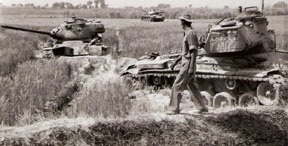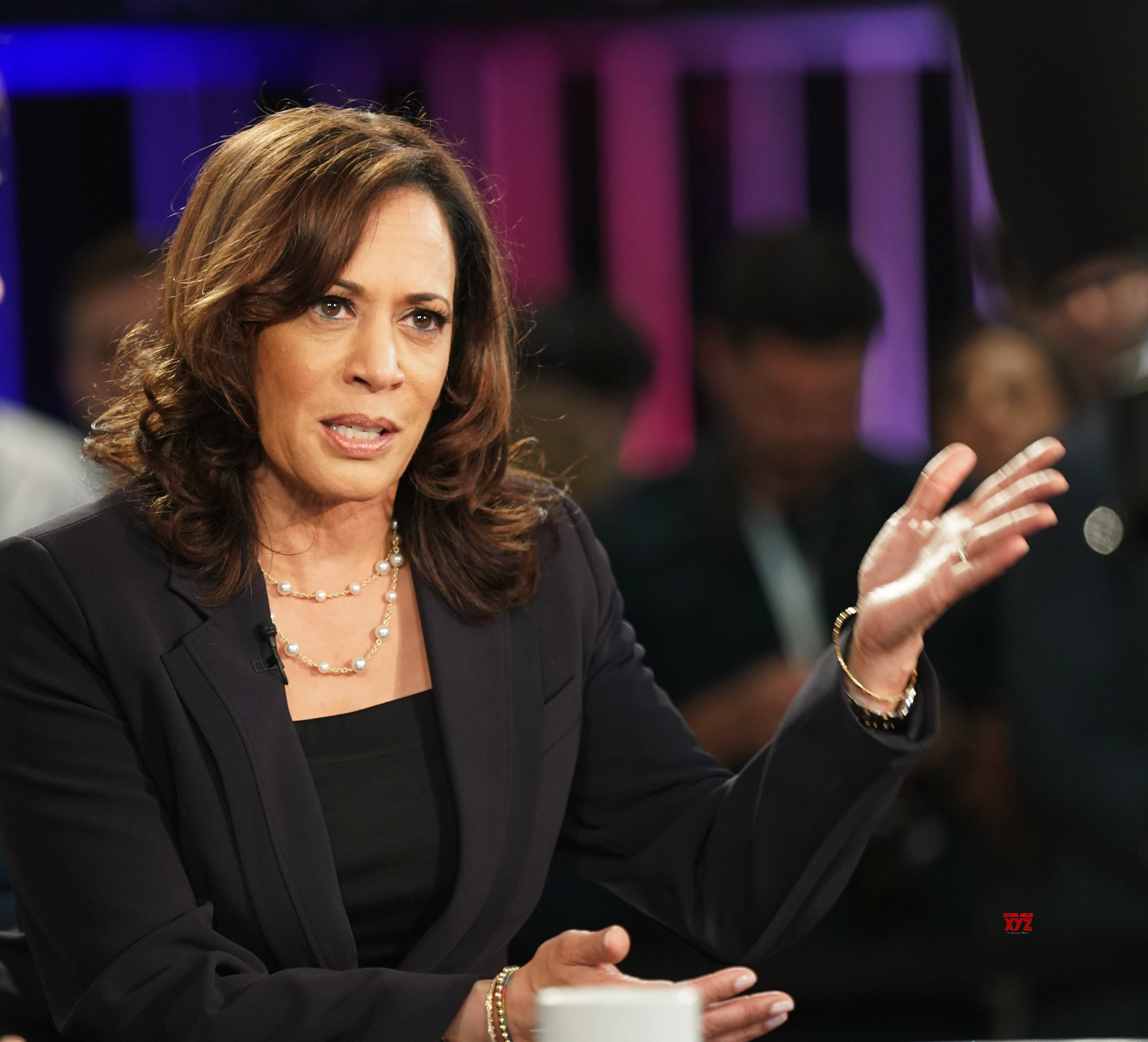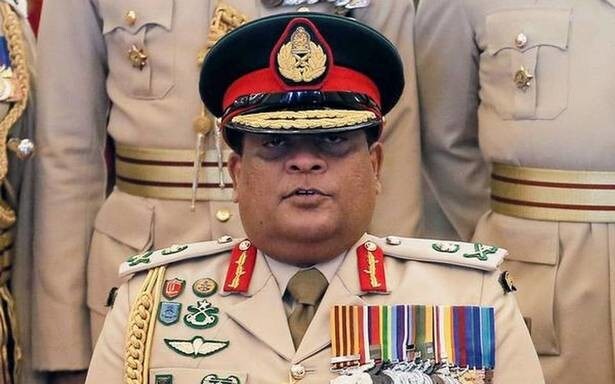 WASHINGTON: The US in 1965 had supported India’s stand that there should be no plebiscite in Kashmir, declassified US documents of the era indicate.
WASHINGTON: The US in 1965 had supported India’s stand that there should be no plebiscite in Kashmir, declassified US documents of the era indicate.
At the peak of the 1965 Indo-Pak war, the then Prime Minister Lal Bahadur Shastri wrote a letter to US President Lyndon Johnson wherein he informed the American leadership that New Delhi is willing to agree to an unconditional ceasefire.
He in his letter dated September 16, 1965 ruled out plebiscite in Kashmir arguing that the 1948 UN resolution in this regard was no longer acceptable.
Shastri’s comments came after the then Pakistan foreign minister Zulfikar Ali Bhutto told Americans that Pakistan was ready to be degraded as a nation but would not give up its claims over Kashmir.
The day on which the Indian forces entered Pakistan, US Ambassador in Islamabad Walter Patrick McConaughty met the then Pakistan president Ayub Khan and foreign minister Bhutto who wanted an assurance from the US, UN and the international community for a plebiscite in Kashmir.
During the conversation, McConaughty told them that Pakistan was responsible for this war, by sending troops inside Kashmir and using American weapons — which were given for use against a communist China — against India.
The same day, the Johnson Administration in a separate telegram asked McConaughty to convey a tough message to Pakistan that it should not portray itself as a victim, for which it itself was to be blamed.
“We must view India’s attacks across Pak border in over-all context events past few weeks. It clear from UNSYG (UN Secretary General) report that immediate crisis began with substantial infiltration of armed men from the Pakistan side,” the State Department said in its message to McConaughty that was to be conveyed to Pakistan.
“We (are) aware India first put regular forces across CFL but Pak responses thereto in Chhamb area struck at points India considered vital, and Indians have long asserted (a) they could not tolerate continued Pak offensive, and (b) if Pakistan should strike India’s vital interests, India would have no choice but to respond in area of its own choosing.
GOP must have been well aware of risk involved in its own actions in Jammu and Kashmir,” the State Department said.
But the US officials had a tough job to do to convince Pakistan for an unconditional ceasefire.
In his letter to Johnson, Shastri wrote, “I should like to state quite categorically that there can be no further question of any plebiscite to ascertain the wishes of the people of Jammu & Kashmir.”
In his letter Shastri explained as to why India agreed to a plebiscite in Kashmir in 1948 and this is no longer an option.
“The reason why, when in 1947, we first went to the Security Council with a complaint of aggression against Pakistan, we made a unilateral promise of having a plebiscite in the State of Jammu & Kashmir, was that, at that time, the State had no democracy, having been under the rule of a prince in the British days, and we were anxious ourselves to be satisfied that the people, as distinct from the ruler, genuinely favored accession to India,” Shastri wrote, according to a copy of the letter released by State Department.
“Ever since the accession of the State, we have been building up democratic institutions. There have been three general elections in conditions of freedom. The results of these elections have demonstrated clearly that the people of Jammu & Kashmir have accepted their place in the Indian Union.
“I should like to state quite categorically that there can be no further question of any plebiscite to ascertain the wishes of the people of Jammu & Kashmir,” he wrote.
“If President Ayub feels that by launching an invasion on the State of Jammu & Kashmir, he will pressurize us into ceding any part of the State of Jammu & Kashmir, all I can say is that he is grievously mistaken. Much though we love peace, we shall not buy it by selling our territory,” Shastri wrote.
As Pakistan was fast running out of ammunition, US feared that any delay in ceasefire would put Pakistan at a disadvantage position and could be very well run over by a strong Indian Army, which was moving fast inside the Pakistan side of Punjab.
Even at this stage, both Ayub Khan and Bhutto insisted that US should exert pressure on India for a plebiscite in Kashmir or else America would be considered an enemy of Pakistan.
Four days after Indian forces successfully entered Pakistani Punjab, McConaughy met Bhutto with a ceasefire proposal so as to protect the territorial integrity of Pakistan.
Referring to his conversation with Bhutto in Rawalpindi, McConaughty wrote in a cable that the Pakistan foreign minister conceded that because of India opening the battle front in Punjab, attrition was already becoming a problem for the Pakistani forces and attrition would soon have a ruinous effect on the country’s ability to defend itself if US decision not reversed. .
“(Bhutto) said Pakistan would fight on to finish with sticks and stones and with bare hands if necessary, but their ability to hold back Indian attack would be vitally undermined by this US blow (of imposing arms sanctions),” the US diplomat wrote to the State Department.
“GOP (government of Pakistan) would now be even less inclined than before to accept proposals which would not contain assured provision for withdrawal of Indian armed forces from Kashmir and exercise of self-determination right by Kashmiris. Pakistan would not respond to the kind of pressure inherent in the US action,” Bhutto insisted.
McConaughty told Bhutto that such a decision by Pakistan was not sensible.
“I told Bhutto it seemed to us that GOP was refusing to abandon the resort to force unless it attained in advance full agreement to its basic objectives as to Kashmir. It was not sensible to assume that this most intractable of world issues that has defied all solution efforts for 18 years could be settled now by the attachment of a Pakistani-prescribed rider to a ceasefire agreement,” he wrote.
“He (Bhutto) said the Pakistanis would sell all their possessions, even their family heirlooms in order to get the means to continue the struggle until the Indian invasion repulsed and Kashmiri rights established.
On September 9, the Ambassador met Bhutto with the unconditional ceasefire proposal.
Bhutto rejected and said any ceasefire proposal has to be linked with a plebiscite in Kashmir.
“Ceasefire must form part of final Kashmir settlement along lines: a) India and Pakistan vacate territory, b) UN administration of law and order for period approximately six months, c) plebiscite within precisely stipulated time.
Without that there can be no solution,” Bhutto said according to the document.
“I said India not able to agree to that now and Bhutto responded, ‘Then let them destroy Pakistan!'”
“Bhutto said ‘People of Kashmir alone must decide, and no solution is complete without people of Kashmir expressing right of self-determination. This is battle of survival for Pakistan. We must be either degraded as nation or prevail. We prepared fight to finish,” McConaughty wrote in his telegram.
As India was on the verge of capturing Lahore, Bhutto according to the telegram, told the US envoy: “You cannot destroy…people and their spirit by one battle in Lahore.” –PTI






